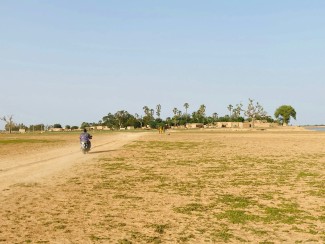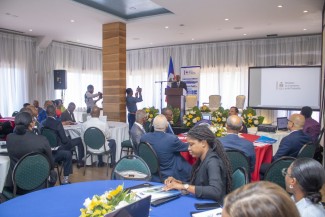For the first time, an alliance of African countries have called for targeted action to strengthen the trade capacity of the world’s poorest countries and enhance their position in global and regional markets.
In a call to action presented at the Global Forum on Inclusive Trade for Least Developed Countries (LDCs), leaders from The Gambia, Central African Republic, Malawi, and Uganda committed to designing pro-poor and inclusive trade policies in their countries and called for more international support to help Least Developed Countries (LDCs) benefit from trade.
“We know there are challenges in improving the situation for all LDCs, which is why we are calling for more action… to foster inclusive trade,” said Fatoumata Jallow-Tambajang, Vice President and Minister of Women’s Affairs of The Gambia in her keynote speech at the Forum.
There are 47 Least Developed Countries (LDCs) representing 13% of the world’s population. Despite strong efforts to incorporate LDCs into the global trading system, LDCs still engage in less than 1% of global trade due to challenges such as connecting with international markets, supporting domestic private sector, seeking out new global and regional opportunities and growing global uncertainties.
Hosted by the Enhanced Integrated Framework (EIF), it was the first event exclusively dedicated to helping the world's poorest nations benefit from trade. Bringing together over 300 people from all walks of life - from princess to farm manager - the Forum focused on three key areas: multilateral and regional trade, inclusive trade and economic growth, and global agricultural value chains.
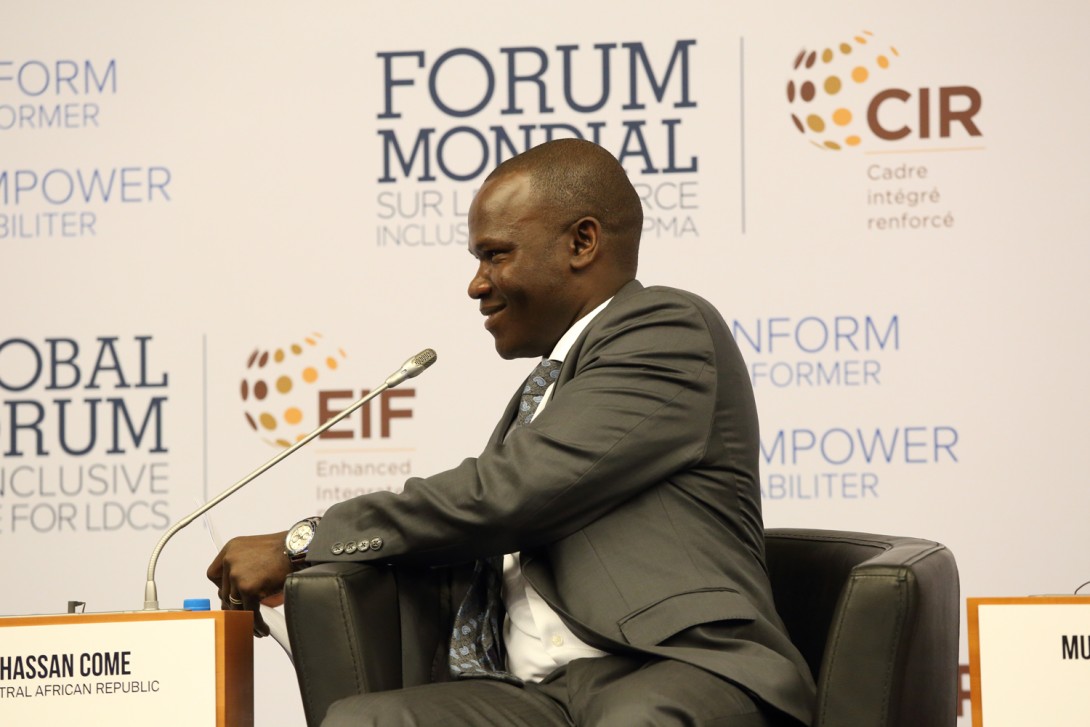
WHAT IS INCLUSIVE TRADE?
The classification of LDC is determined by a combination of three factors: per capita income, human assets like education and nutrition, and economic vulnerability.
To graduate from the LDC category, countries need to have a gross national income of $1,230 or above per capita, a human asset index of 66 or above and an economic vulnerability index score of 32 or below.
A number of LDCs from Africa, Asia, and the Pacific are currently in the process of meeting the graduation criteria. The Forum heard a need to act now to ensure at least half of the LDCs meet the graduation criteria by 2020 and have a smooth post-graduation transition.
“The time has come to revisit the LDC paradigm and take an out of the box approach. In order to help them, we need to reconsider them,” said Debapriya Bhattacharya, chair of the LDC IV Monitor at the Centre for Policy Dialogue.
One of the ways in which least developed countries can achieve substantial gains in economic growth, poverty reduction and women’s economic empowerment is through enhancing their agribusiness value chains.
One such country is Lesotho – a small country is southern Africa that has moved further up regional and global value chains by strengthening production, processing, and marketing of agricultural products.
Matiti Trish Kabi is the Executive Director of Alosang Enterprise – a successful commercial fruit and vegetable farm and agroprocessing company in Lesotho. With concerted international donor support, Kabi has been able to grow her company’s productivity from 5,000 to 20,000 seedlings and staffing capacity by 1150% in a few years. She is now looking into opportunities to export to the international market.
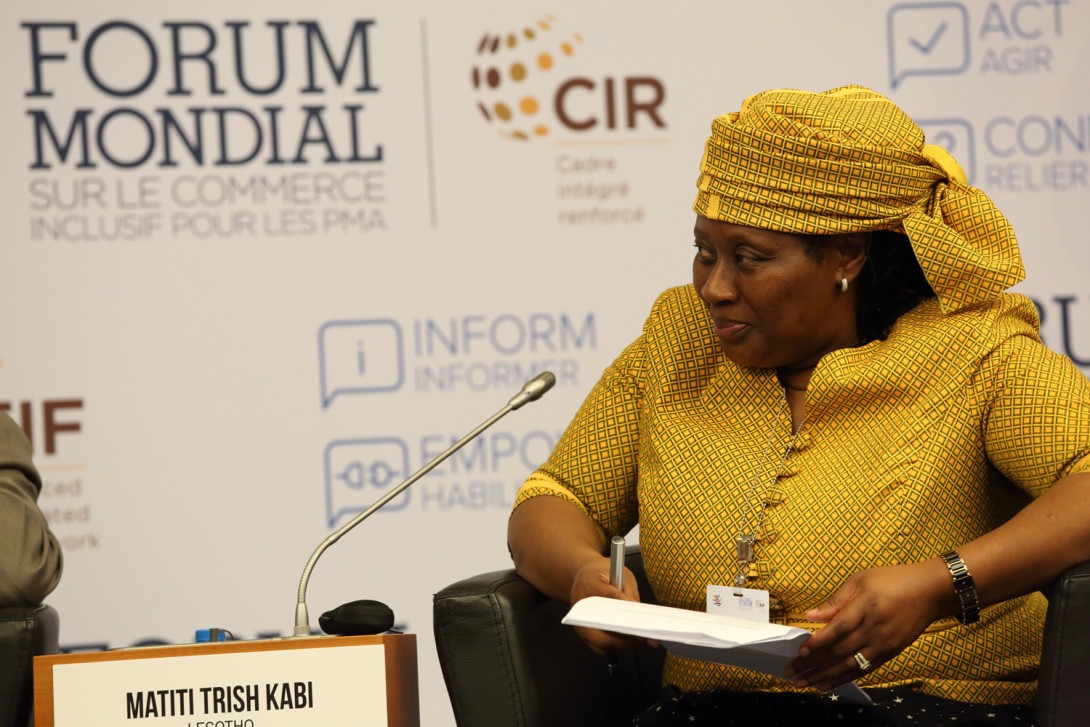
“The market for us is vibrant…the policy framework in our country is supportive. The current national development strategy is looking at agriculture as one of the enabling sectors to enhance our economy. The current national budget has incorporated agriculture as a key focus point,” Kabi said.
“The initiatives we took as a small entity, we believe this can easily be replicated throughout a small country and in so doing it will enable us to advance our economy, address poverty and create jobs for our women and youth,” she said.
WOMEN: THE MOVERS AND SHAKERS OF TRADE
Kabi is but one of the powerhouse women who had a strong story to tell at the Forum.
At a session on trade strategies for women, Laila Said-Hassane, from the Comoros Mutual Savings and Credit, shared her work in helping underprivileged people access funding, particularly young people, through grants, scholarships, and a range of other initiatives.
Her fellow panelists called for concrete steps and joint action for more inclusive trade, including essential support for small businesses where is often where women and youth play a key role. The Gambia's economy, for example, is characterized by micro enterprises, 80% of which have women at the helm.
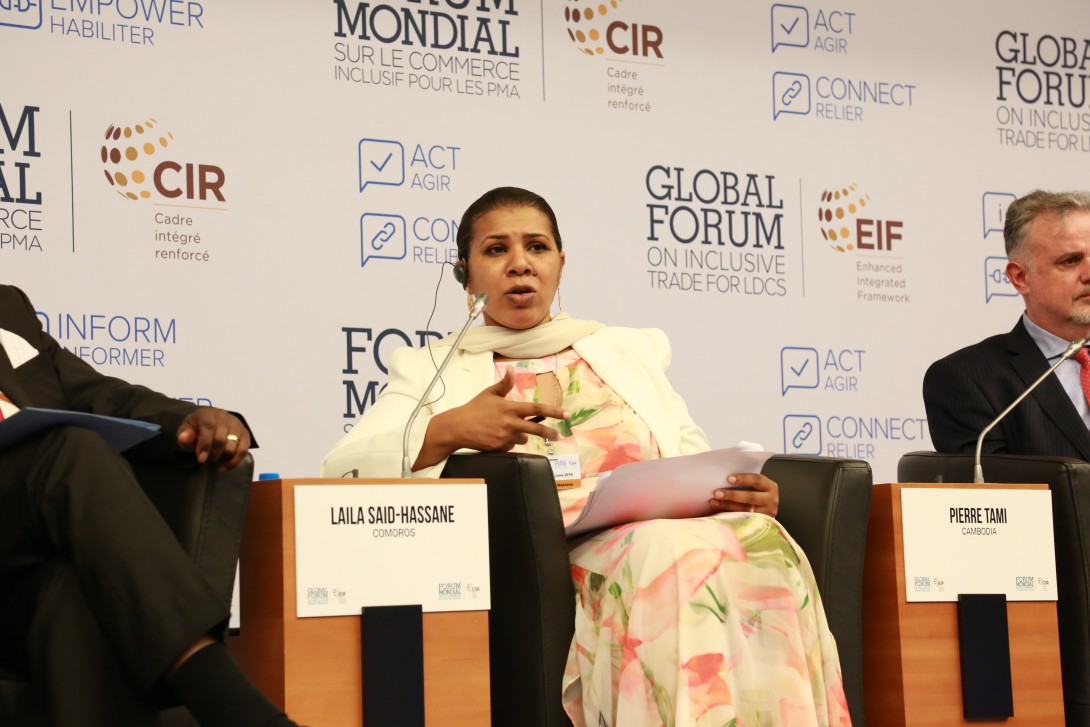
STRONG LEADERSHIP FROM AFRICA
The Forum had strong representation – and leadership – from over 40 LDCs, many of which were from across the African continent.
This is the first time that representatives from four African LDCs – The Gambia, Central African Republic, Malawi and Uganda – have come together to lead a call for targeted trade action on behalf of all LDCs.
In the call they commit to designing pro-poor and inclusive trade policies in their countries, particularly those that support small businesses, women and youth.
“The LDCs have pledged to do their bit in terms of providing necessary capital at the country level but they would like additional support from the international community,” said Ratnakar Adhikari, Executive Director of the Executive Secretariat for the EIF.
The call also recommits all the LDCs to the global development agenda, Ratnakar said.
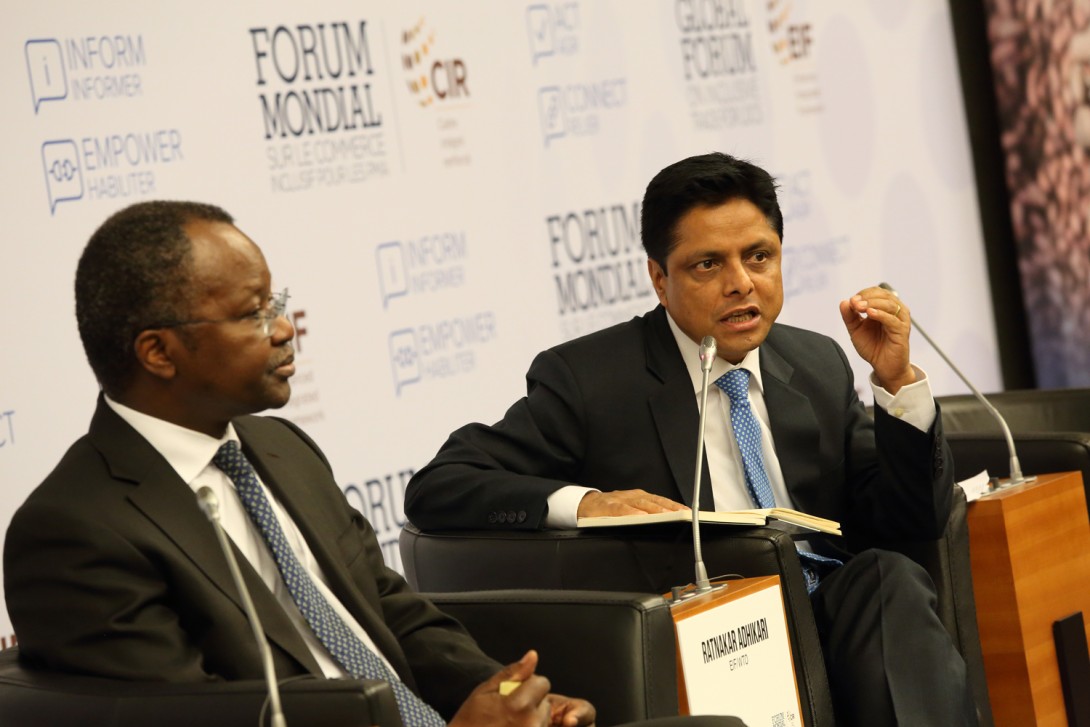
“The LDCs have put their weight behind the multilateral trading system,” he said.
The Forum also saw the establishment of two significant partnerships – between Commonwealth and the World Trade Organization (WTO) and the EIF and the Pacific Islands Secretariat.
Such partnerships will ensure that trade-led development brings tangible benefits to the people in LDCs, particularly through collaboration on trade-related research, technical assistance, impact assessments and capacity building for LDCs.
“This is a defining moment for Africa. We have an opportunity to make sure that we leave a legacy that will benefit Africans from the sustainable projects we have initiated,” Kabi said.
The Global Forum on Inclusive Trade for LDCs would not have been possible without the financial support of the EIF Trust Fund Donors and additional Forum sponsors, including International Islamic Tade Finance Corporation, Trade Facilitation Agreement Facility and German Development Cooperation.
If you would like to reuse any material published here, please let us know by sending an email to EIF Communications: eifcommunications@wto.org.

